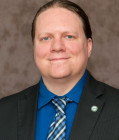How Religious Groups Doing Creation Care Can Help Address Climate Change
Though useful, most efforts to address environmental issues focus too narrowly on policy changes and economic reorganization. Their narrow focus means they often fall short when they confront partisan gridlock or have to compete against economic interests with short-term priorities. Reformers hoping to promote effective climate change solutions would be well-advised to forge partnerships with religious groups, who are uniquely positioned to engage the values of otherwise unreceptive audiences and work through community and interpersonal ties.
Religious groups with rich histories of practical, values-based environmental concern could help direct the nation towards long-term ethical change. To foster such leadership, religious communities must be allowed to lead the way on their own terms — for instance, they should be allowed to discuss “creation care” rather than being pushed to use politically-loaded terms like “environmentalism.” If they can speak and act in their own ways, religious Americans may be able to address challenges that other environmental efforts have been unable to overcome.
What is “Creation Care”?
Creation care groups include both multi-faith organizations and groups connected to specific religious traditions and denominations. These groups hold a variety of views on environmental issues and engage in an array of pro-environmental behaviors. Some seek inspiration in religious texts and traditions to discuss and address environmental concerns. Others offer environmental education for community members and their families. Still other groups facilitate sustainability or recycling programs and take action to tackle environmental problems specific to their communities. Creation care embraces a range of forms of engagement and spans varied local needs and the priorities of different religious denominations.
Although the groups, communities, and organizations involved use different strategies, their creation care work shares three core features:
-
A focus on long-term ethical change rather than single-issue political or economic reform.
-
Addressing issues in terms of the value of stewardship — where humans are charged with improving and protecting the natural environment for the sake of present and future generations — and conservation — where the natural world is deemed a testament to the divine, and therefore, natural areas and their ecosystems are set aside for preservation and human appreciation.
-
Engagement with farmers in rural areas. Creation care groups take the lives, livelihoods, and knowledge of farmers and farming communities into account.
Promoting Green Ethical Change
Although the earliest creation care efforts predate the formation of the United States, the first explicit statement of this approach was issued by the United Presbyterian Church in 1971. That pronouncement was, in turn, quickly followed by statements from numerous other religious groups. Since ethical change can take decades to unfold, climate advocacy groups, grant makers, and creation care groups must support research into whether and to what extent these ideas are influencing U.S. culture and society over time. Most existing research on U.S. creation care efforts so far has focused on differences between Judeo-Christian faiths and the religiously unaffiliated. As the United States becomes ever more diverse in religion and culture, new opportunities will emerge to study creation care and the ethical changes underpinning it.
Creation care groups have already had powerful long-term impacts. Young Christians across most groups espouse higher levels of stewardship and conservation ethics than their parents or grandparents. Even if they later left their natal faiths as adults, people raised in religious groups with a clear stance on creation care are similarly or more inclined to both stewardship and conservation than those who grew up outside of any religious tradition. With some nuances, these trends hold across political, economic, racial, ethnic, and gender divides. Overall, despite widespread pessimism regarding environmental problems, people in the United States have become greener, and religious groups have played a notable but under-recognized role in this process.
Building Bridges and Drawing Boundaries
In today’s highly polarized society, creation care efforts have an essential role to play in environmental preservation. Churches often bring people from differing backgrounds and political views together. As such, churches can facilitate cross-political communication and promote environmental efforts to groups that would otherwise regard the efforts as partisan or unimportant. Religious organizations working towards these ends should consider:
-
Building on efforts centered on farmers to include other groups affected by climate change. To do this, they must develop locally-based approaches that take into account the individuals and families impacted by the environmental problems and proposed solutions.
-
Helping their communities organize and promote change to address pollution, food scarcity, or other environmental justice issues. For example, they could organize sustainable community gardens in areas which lack access to nutritious food, or organize in urban areas impacted by pollution and industrial waste.
-
Develop new means through which religious leaders can engage people in their faith communities — especially younger members — in creation care.
With each passing day, the climate crisis worsens. Creation care groups are essential partners for policymakers, advocates, and researchers dedicated to solving environmental problems. Creation care has worked. By wielding religious language and promoting religious frames for pragmatic approaches, creation care leaders have successfully resolved tensions between scientific knowledge and religious faith. This work must continue. The environmental crisis needs to be discussed in popularly rooted, common languages that connect nature to humanity and science to morality.
Read more in Lukas Szrot “Lynn White, Reconsidered: Religiosity and Environmental Concern in the United States” Journal of Behavioral and Social Sciences 6, no. 1 (2019).
